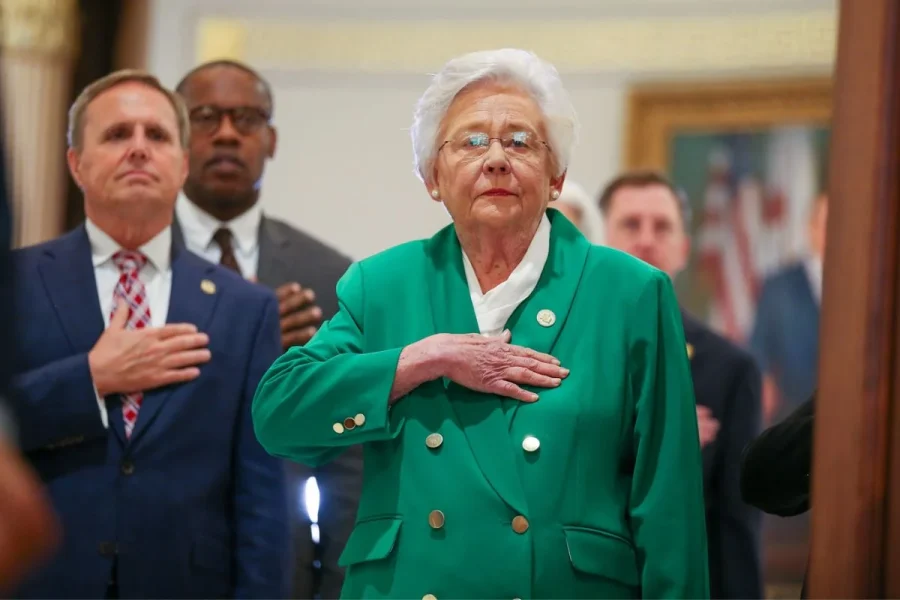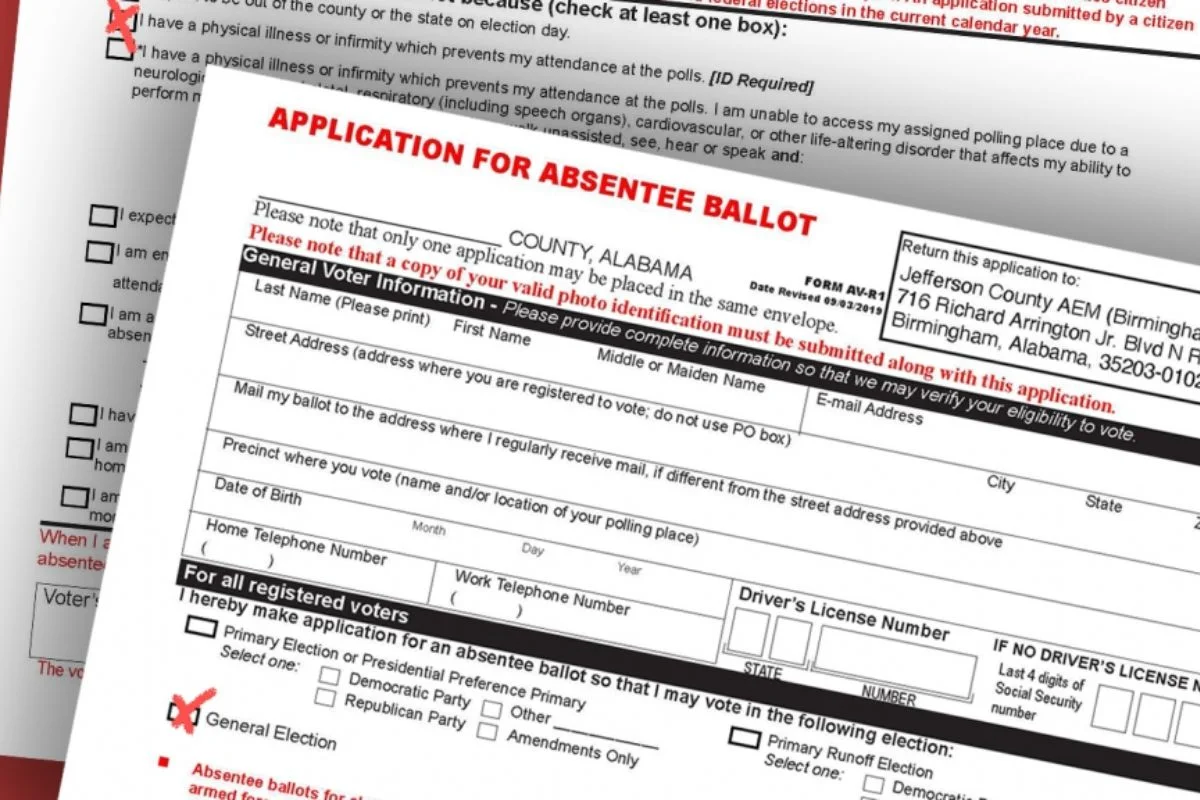Ivey to Sign Absentee Ballot Assistance Bill: Governor Ivey’s approval of the absentee ballot assistance bill in Alabama has ignited intense debate. SB1 criminalizes certain forms of assistance with absentee voting, raising concerns about voter accessibility. The bill’s Republican backers argue it combats voter fraud, while Democrats and advocacy groups denounce it as voter suppression.
SB1’s potential effects on absentee ballot procedures and voter turnout, particularly in marginalized communities, are significant. Governor Ivey’s decision on SB1 will shape the future of voting rights in Alabama. This controversial bill underscores a deeper divide on voting rights and election laws.
Alabama Senate Passes Controversial Bill Criminalizing Assistance in Absentee Voting
The Alabama Senate’s recent passing of the controversial SB1 bill, aimed at criminalizing specific forms of assistance in the absentee voting process, has ignited a fiery debate on election integrity and voter suppression.
Sponsored by Garlan Gudger, R-Cullman, the bill targets third parties involved in absentee ballot activities, making it a Class C felony to receive payments or gifts for tasks such as distributing or completing absentee ballot applications. Supporters argue that the legislation is vital to combat ballot harvesting and maintain the sanctity of elections.
However, Democrats have strongly opposed the bill, labeling it as a voter suppression tactic without substantial merit. Jerome Dees from the SPLC Action Fund criticized the bill for criminalizing acts of charity and disproportionately affecting vulnerable groups like neighbors, churchgoers, and nursing home employees.
Senate Minority Leader Bobby Singleton, D-Greensboro, dismissed the notion of widespread ballot harvesting and condemned the bill as a tool for disenfranchisement. The partisan divide over SB1 underscores the contentious nature of election laws and their implications on voter rights.
Divisive Reactions and Concerns Over Voter Access
Amidst the contentious debate surrounding the passage of SB1 in Alabama, reactions and concerns over voter access have become increasingly divisive and complex.
The bill, touted by Republicans as a safeguard against voter fraud, is met with strong opposition from Democrats and advocacy groups who fear it will hinder absentee voting, particularly for marginalized communities. Despite provisions for individuals with disabilities or medical emergencies, worries persist about the legislation’s impact on absentee voting assistance, potentially limiting access to the electoral process.
Critics argue that the bill’s restrictions may deter both the offering and receiving of aid with absentee voting, further disenfranchising certain groups. The partisan disagreements over SB1 highlight broader tensions around voting rights and election laws, with Republicans emphasizing fraud prevention and Democrats stressing the need to protect voter access and participation.
As the bill heads towards enactment, the discourse over its implications intensifies, reflecting deep-rooted divisions in perspectives on voter access and election integrity.

READ MORE: Alabama Passes Controversial Absentee Voting Restrictions
Implications and Next Steps
Considering the potential ramifications of SB1 on absentee voting protocols in Alabama, an in-depth analysis of the bill’s implications and the subsequent course of action becomes essential. SB1, if enacted, will likely bring about changes in how absentee ballots are requested, completed, and submitted in the state. This could have a direct impact on voter turnout and accessibility, especially for marginalized communities who often rely on absentee voting. Additionally, the passage of SB1 may set a precedent for future voting rights legislation in Alabama, influencing the state’s electoral landscape for years to come.
Next steps following Governor Ivey’s decision to sign or veto SB1 will be pivotal. If the bill becomes law, attention will shift towards its practical implementation and enforcement. Advocates and opponents alike will closely monitor the effects of SB1 on voter behavior and participation. Conversely, if Governor Ivey chooses to veto the bill, discussions on alternative measures to address absentee voting concerns will likely ensue. Regardless of the outcome, SB1 has sparked significant controversy and is poised to shape the direction of voting rights in Alabama.
News in Brief
The passage of the bill criminalizing assistance in absentee voting by the Alabama Senate has sparked controversy and raised concerns about voter access.
The implications of this legislation remain to be seen, but it is clear that it has created a divisive reaction among the public.
Moving forward, it will be important to monitor how this bill is implemented and its impact on voter participation in future elections.

